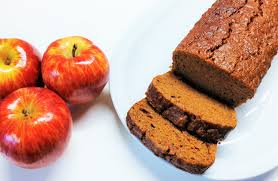I used to spend hours in the kitchen watching and helping my mother cook for the family. As I got older my love and passion for cooking never seemed to waiver and the influence from her has helped me tremendously over the years.
The website of Quichentell is really very amazing as it provides all the steps and methods to make various mouth-watering recipes. Check out their 4 Hour Baguette recipe you will definitely like it.
I don't regard myself as an expert and have always been willing to learn and pick up advice, tips, and techniques from people who have more knowledge than me about different aspects of cooking.
However much of the early advice, tips, and techniques about cooking were passed on to me from my mother and this is where I learned the basics about cooking, which is as relevant today as it was when I was younger. The list below includes much of that advice given to me which I would like to share with you.
1. Keep Things Simple
Keep things simple, don't attempt complicated recipes without first trying very basic cooking recipes. In other words, don't run before you can walk!
2. Read the Recipe
Always read the recipe first and I don't mean just skim read it. Read it properly from start to finish, several times over so you know exactly what is required with regards to ingredients and using correct utensils such as pots, pans, and dishes.
3. Use the Correct Amount of Ingredients
Don't guess the number of ingredients you require for a recipe, make sure you use measuring scales for dry ingredients and a measuring jug for liquids. More than often using incorrect amounts of ingredients in a recipe can have a disastrous effect on the outcome of your cooking. It's fair to say that most recipes' contents are flexible and most experienced cooks will know whether a recipe will work or not with a variation on the number of ingredients, however, I would suggest if you are a novice or beginner cook, don't deviate from the recipes instructions.
4. Don't Try To Be Perfect
Never be hard on yourself when attempting new recipes, always do the best you can and don't try to be perfect, because I'm afraid nothing and nobody is perfect, even those celebrity chefs we all see on TV. Believe it or not, they mess up recipes just like the rest of us.
5. Pre-heat Pots and Pans
I was always taught that before beginning the process of cooking any food, was to make sure that the pots and pans were heated properly first. The reason being is that it saves time whilst cooking and also reduces the risk of food sticking to the pots or pans. Having said that there are many varied opinions on this subject and what I would say is that it's really trial and error if you decide to use a cold pan.
6. Use the Correct Size Pots and Pans
Make sure you use the correct size pots and pans for the quantity of food you intend to cook. Too large a pan for a small amount of food is a waste of energy, whereas a small pan with too much food, strangely enough, tend to need more heat to cook the food, and then there is the problem that the contents of the pan will overflow and make a mess of your cooker.
7. Use a Kitchen Timer
Always use a kitchen timer of some description, especially if you are cooking multiple dishes. Don't rely on guesswork or as some would say basic instinct. Yes, you can check with the kitchen clock or your wristwatch, but I often use the timer on the microwave as a fail-safe.
8. Invest in a Freezer
Investing in a freezer is perhaps a cooking tip that is not often thought about. When I was younger we used to have a great big old chest freezer in the garage and I remember my mother always getting something out the freezer first thing in the morning for dinner that evening. She would spend a few hours a week preparing and cooking large batches of food which were then frozen and used as and when required, this, in turn, save time and money.
If you are looking for some tasty and easy-to-cook recipes, then check out the mouth-watering recipe of Whole Wheat Apple Bread which is really very delicious and your family will really love it a lot.
9. Keep Your Kitchen Knives Sharp
Always use sharp knives. Firstly it's a lot safer, a knife that is not sharp can be a dangerous implement. Secondly, it will make your work in the kitchen far easier. Keep your knives sharp with knife steel, essentially this is a steel rod with a handle that you can buy separately or with a knife set.


Comments
Post a Comment